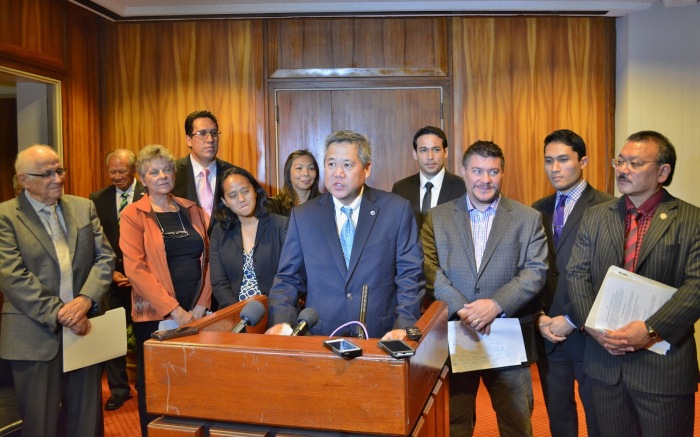 Liberal and progressive Democrats have never missed an opportunity to alienate voters. On this occasion, the Honolulu Star-Advertiser’s Editorial Board (party-of-one) finally called it like it is:
Liberal and progressive Democrats have never missed an opportunity to alienate voters. On this occasion, the Honolulu Star-Advertiser’s Editorial Board (party-of-one) finally called it like it is:
On a bad-government note: Legislators on the House floor Tuesday approved a blank bill with no content; its only vague reference was to geothermal power and it was advanced, over some objections, to conference committee negotiations. This short-form bill maneuver — “unusual,” conceded House Finance Chairwoman Sylvia Luke — locks out direct public input on the proposed law to be discussed, since conference committee is where language will be inserted in the blank bill but public testimony is not allowed.
Open-government advocates warn yearly about “gut and replace” tactics at this stage of the session, but it is unconscionable for legislators to forward a blank bill on the contentious issue of geothermal power with no hint of content or prior public input. This one bears particular scrutiny.
Recall that it was this very same leadership team of liberal Democrats that promised transparency in government:
The most critical important check on government is an informed and involved citizenry. At minimum, residents should vote. We will work to facilitate, rather than hamper, public involvement in government.
— followed time and again, and again, and again, and again, and again, and again where they betrayed the transparency and good government that they promised.
Conference committee is a dark time at the Legislature where the House and Senate hammer our their differences on pieces of legislation that have managed to pass through both chambers. During this part of the legislative session, no public testimony is accepted.
This move is part-and-parcel of the liberal agenda – to alienate moderate and conservative voters so that louder, more liberal and progressive voices are able to monopolize government. This is not a “red” or “blue” issue. It is not about Democrats and Republicans — there are moderate Democrats who have also suffered at the hands of this unholy crusade. Likewise, there are liberal Republicans who have benefitted from the alienation of moderates and conservatives.
It is about liberals and progressives against moderates and conservatives. When elected officials remove the public from the lawmaking process, being disengaged is the worst possible option. Now more than ever, people of faith must stay engaged and keep government accountable.
 The latest installment of “Working Hard or Hardly Working” (WH/HW?) comes from Senate Ways and Means Chairwoman Jill Tokuda.
The latest installment of “Working Hard or Hardly Working” (WH/HW?) comes from Senate Ways and Means Chairwoman Jill Tokuda.